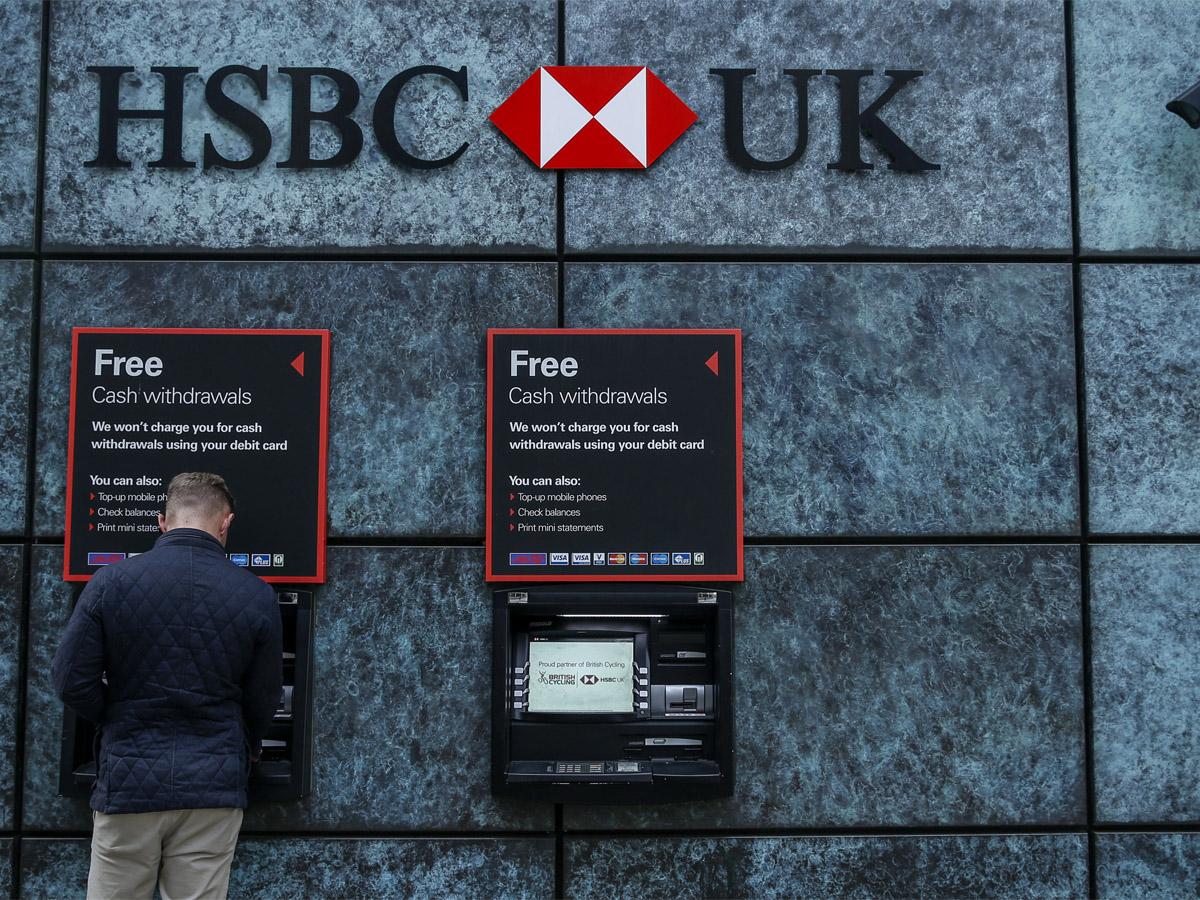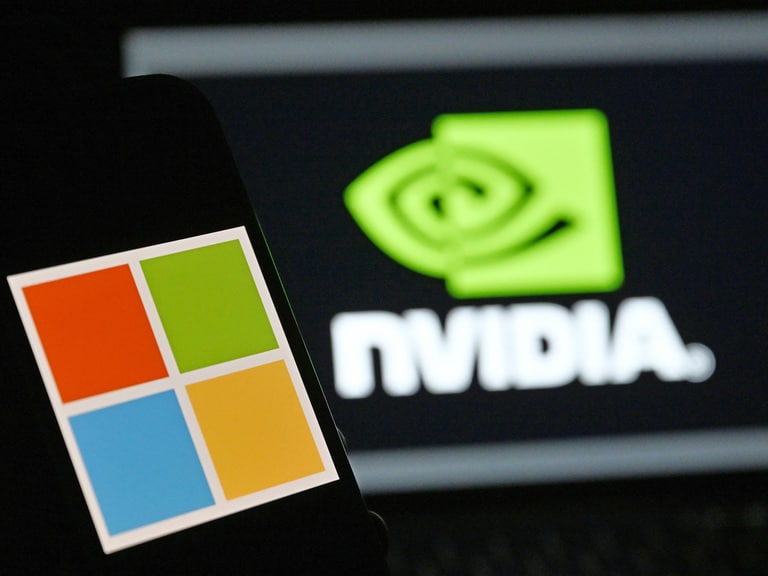HSBC’s share price has suffered following a tough 12 months. What can we expect when it releases annual results next Tuesday? The bank’s share price has fallen by 11% in the last 12 months. During that time, the share price dropped as low as 552p on 31 January.
The bank has been hit by a multitude of negative factors such as ultra-low interest rates from the US and Europe as well as geopolitical events including the political protests in Hong Kong, the US-China trade war and Brexit uncertainty. This depressed economic backdrop has seen HSBC’s [HSBA] share price underperform UK banking rivals, with Barclays’ [BARC] share price actually up a similar percentage – 12.8% - over the same period.
11%
Share price fall in the last 12 months
HSBC’s chief executive John Flint resigned in August with interim boss Noel Quinn quickly launching a round of cost-cuts including the loss of around 10,000 jobs.
The bank’s Q3 results were disappointing, as the bank reported pre-tax profit of $4.8bn compared with analysts’ forecasts of $5.3bn. It blamed its continental Europe and US divisions as well as its non-ring-fenced bank in the UK for a 3% fall in revenues during the period. Far rosier earnings results will be required this time around to lift an ailing share price.
“Our previous plans are no longer sufficient to improve performance for these businesses, given the softer outlook for revenue growth,” Quinn said at the time. “We are therefore accelerating plans to remodel them and move capital into higher growth and return opportunities.”
“Our previous plans are no longer sufficient to improve performance for these businesses, given the softer outlook for revenue growth. We are therefore accelerating plans to remodel them and move capital into higher growth and return opportunities" - HSBC interim-CEO Noel Quinn
As a result of a “more challenging” revenue outlook compared with the first half of the year, the bank said it did not expect to meet its return on tangible equity target of 11% in 2020. So, what should investors expect for Q4, and the firm’s share price outlook for the rest of 2020?
Upcoming earnings
It’s expected that Quinn will launch a new strategy update at its annual results next week to revitalise its sluggish performance. This is likely to include another round of job cuts and reduced presence in smaller markets worldwide. It may also look to sell its banking business in Turkey due to currency volatility there.
Other reports suggest that the bank is considering a merger of its commercial and investment divisions and the creation of a ‘bad bank’ to host between $150bn and $250bn in unwanted assets and businesses.
What do analysts think?
On 11 February, Credit Suisse upgraded its recommendation on the share price to outperform from neutral. It also reduced its price target to 635p from 655p, saying that the bank was at a “pivotal stage” in its turnaround strategy but “offered an opportunity to drive a rate of return of over 11% by 2022, which would re-rate the share price”.
Meanwhile, analysts polled by Market Screener gave HSBC has a consensus hold rating.
| Market Cap | £118.723bn |
| PE ratio (TTM) | 9.16 |
| EPS (TTM) | 64.40 |
| Quarterly Revenue Growth (YoY) | -6.20% |
HSBC share price vitals, Yahoo Finance, 17 February 2020
ZacksInvestment Research said that while HSBC’s initiatives to improve market share in the UK and China are likely to support financials in the long-term, “these are expected to income-generating expenses”.
Although HSBC’s cost-cutting strategies have kept the company profitable, they “do diminish the possibility of growth in the near future,” according to Capital.com. However, it did add that the “increasing belief that 2020 will not see the same meteoric market growth as 2019 will push more investors toward income-generating stocks like HSBC. The possibility of steady dividends in the face of increased market volatility should allow HSBC to avoid any further major losses”.
Harvey Jones, writing in the Motley Fool, agreed that there is a big investment opportunity given HSBC’s “cheap” price. “This mighty operation, which has a market-cap totalling almost £114bn, currently trades at just 10.9 times forward earnings, well below the FTSE 100 average of just over 18 times earnings,” he said.
“The possibility of steady dividends in the face of increased market volatility should allow HSBC to avoid any further major losses” - Zacks Investment Research
However, he did add that although multinationals are often at the whim of geopolitical events, this could provide an opportunity for those looking to hold on to the share price. “The share price is due some kind of snapback,” he explained.
An improvement in the political situation in Hong Kong, which represents the bulk of HSBC’s retail banking and wealth management earnings, would certainly provide a life raft for HSBC, as would a cessation of virus outbreak that current threatens economic growth and trade.
Disclaimer Past performance is not a reliable indicator of future results.
CMC Markets is an execution-only service provider. The material (whether or not it states any opinions) is for general information purposes only, and does not take into account your personal circumstances or objectives. Nothing in this material is (or should be considered to be) financial, investment or other advice on which reliance should be placed. No opinion given in the material constitutes a recommendation by CMC Markets or the author that any particular investment, security, transaction or investment strategy is suitable for any specific person.
The material has not been prepared in accordance with legal requirements designed to promote the independence of investment research. Although we are not specifically prevented from dealing before providing this material, we do not seek to take advantage of the material prior to its dissemination.
CMC Markets does not endorse or offer opinion on the trading strategies used by the author. Their trading strategies do not guarantee any return and CMC Markets shall not be held responsible for any loss that you may incur, either directly or indirectly, arising from any investment based on any information contained herein.
*Tax treatment depends on individual circumstances and can change or may differ in a jurisdiction other than the UK.
Continue reading for FREE
- Includes free newsletter updates, unsubscribe anytime. Privacy policy





